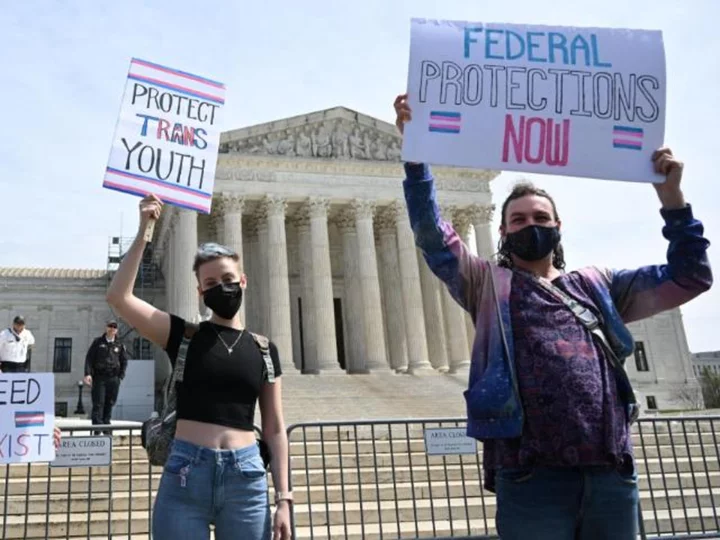The Supreme Court on Friday cleared the way for an individual who suffers from gender dysphoria to sue a Virginia men's prison for violating a federal law that prohibits discrimination based on disability.
A lower federal court in Virginia initially dismissed the lawsuit brought by Kesha Williams, a transgender woman, on the basis of the Americans with Disabilities Act's explicit exclusion of "gender identity disorders not resulting from physical impairments" from protection under the federal civil rights law. An appeals court later sided with Williams, saying that the 1990 law covers gender dysphoria.
Gender dysphoria describes an uncomfortable conflict -- "psychological distress" -- between a person's assigned gender and the gender with which the person identifies, according to the American Psychiatric Association. "Though gender dysphoria often begins in childhood, some people may not experience it until after puberty or much later," the APA says.
The prison official named in the lawsuit had appealed, but the high court declined to consider it. That means Williams' lawsuit will proceed.
Conservative Justices Samuel Alito and Clarence Thomas publicly dissented from the court's decision to not take up the case.
"In short, the Fourth Circuit's ruling leaves a great many people and institutions under the looming threat of liability, forcing them to change their behavior -- behavior that may be deeply rooted in moral or religious principles -- or face an unending stream of lawsuits," Alito wrote in a nine-page dissent that was joined by Thomas.
"If it is at least possible that the ADA does not require these results, we should be willing to resolve the question now rather than later," he added.
Williams, who had been held for six months in jail in Fairfax County, Virginia, sued several individuals connected to the jail in federal court, claiming that the way she was treated at the facility was a violation of the ADA and other laws.
Among other things, Williams -- who had been initially assigned to the women's housing at the facility but was later moved to its men's housing -- claimed in her suit that she experienced delays in her medical treatment of gender dysphoria and was harassed by other inmates.
"In light of the 'basic promise of equality ... that animates the ADA,' we see no legitimate reason why Congress would intend to exclude from the ADA's protections transgender people who suffer from gender dysphoria," a panel of the 4th US Court of Appeals said in its majority ruling.
Attorneys for Williams urged the Supreme Court to decline the request to hear the case, arguing that Williams' lawsuit was still in its early stages when the district court ruled against her and that a scant record of facts means that it would be difficult for the justices to fully assess the matter.
"There is no pressing need to review the question presented, particularly on this undeveloped record. As (the prison official) acknowledges, there is no circuit split on the question presented. To the contrary, the Fourth Circuit is the first appellate court ever to opine on the proper interpretation of (the section of the law at issue)," the attorneys wrote.
The justices have already taken up a separate case for next term concerning the ADA. In March, they agreed to hear a case concerning whether a self-appointed "tester" of the ADA has the right to sue hotels over alleged violations of the act.









